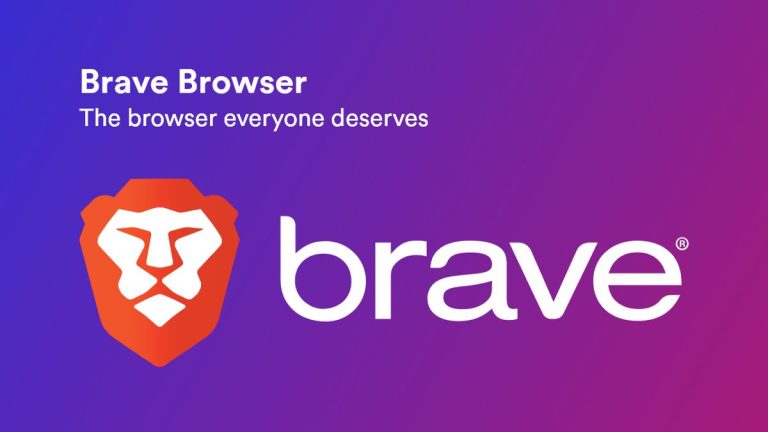
Why your browser choice matters more than ever ?
In the age of advanced cyber threats, your web browser has become one of the most targeted entry points for hackers, data harvesters, and advertisers. Whether it’s phishing, tracking, cookie theft, or browser fingerprinting, most modern attacks happen during your everyday browsing session.
While Chrome, Safari, and Firefox dominate the market, they were not built with privacy-first principles in mind at least not by default. That’s where Brave, a next-generation browser engineered from the ground up for cybersecurity and privacy, comes into play.
What is Brave browser?
Brave is a free and open-source browser developed by Brave Software Inc., co-founded by Brendan Eich the former Mozilla CEO and inventor of JavaScript. Built on Chromium, Brave offers a familiar user experience while removing everything invasive baked into traditional browsers.
But Brave isn’t just a private Chrome clone. It’s a bold reimagination of what a browser should be: fast, secure, private by default, and aligned with user interests not advertisers.
Brave by the numbers (As of 2025)
-
Over 65 million active users worldwide
-
4.5+ rating on Google Play & Apple Store
-
Over 1 million verified publishers
-
Ranked as one of the top private browsers in multiple security studies
-
Integrated with Tor for anonymous browsing
-
Blocks millions of ads and trackers daily on users’ devices
These aren’t just vanity stats they reflect growing global demand for user-first, private browsing.
Brave’s key security & privacy features (Explained)
Let’s dive deeper into what makes Brave the next-gen browser of choice for cybersecurity professionals, privacy advocates, and informed users.
1. Shields up: Real-time blocking of threats
Brave’s shields system automatically blocks:
-
Ads
-
Third-party trackers
-
Fingerprinting scripts
-
Cross-site cookies
-
Malicious scripts
-
Autoplay videos
All this happens without needing to install any third-party extensions like uBlock Origin or Privacy Badger.
You can also customize Shield settings per site useful for white-listing trustworthy platforms.
2. Advanced anti-fingerprinting protection
Browser fingerprinting is a sneaky tactic websites use to track you even if you block cookies. Brave counters this by:
-
Randomizing canvas elements
-
Spoofing browser attributes
-
Reducing unique identifiers
This makes your browser harder to “fingerprint,” protecting you from unseen profiling that even VPNs can’t prevent.
3. Private browsing with tor integration
Need complete anonymity? Brave’s private tabs can connect to Tor (The Onion Router), which:
-
Encrypts traffic across 3 nodes
-
Hides your IP address from ISPs and trackers
-
Makes it harder to trace online activity back to you
You get the benefits of Tor without needing to install the Tor Browser separately.
4. Native HTTPS everywhere
Most browsers offer HTTPS as optional or rely on sites to support it. Brave goes further by forcing HTTPS connections by default, minimizing your risk of:
-
Man-in-the-middle (MITM) attacks
-
Eavesdropping on public Wi-Fi
-
Downgrade attacks
This builds a secure encryption layer for almost all your web activity.
5. Zero data collection
Which thrives on data collection, Brave takes a zero-knowledge approach:
-
No data syncing to Brave’s servers
-
No logging of search queries
-
No third-party analytics trackers
Your data stays on your device. Period.
Even Brave sync, its device syncing tool, is encrypted end-to-end the company itself can’t access it.
6. Unmatched speed and performance
Brave claims to load pages up to 3x faster than Chrome, and tests back it up. Without the weight of ads, third-party trackers, and bloated scripts, Brave is:
-
Lighter on RAM usage
-
Faster at rendering
-
Less prone to freezing or battery drain
This speed boost is not just convenient — it reduces attack surfaces and script vulnerabilities.
7. Brave search & VPN integration
In 2021, Brave launched its own search engine Brave Search which is independent from Google, unlike DuckDuckGo (which uses Bing). It delivers:
-
Unbiased, ad-free results
-
No user tracking or profiling
-
Complete transparency in rankings
Brave also launched a firewall + VPN for mobile devices, available via subscription, adding another layer of network-level protection.
Who should use Brave?
Brave is especially beneficial for:
-
Cybersecurity professionals who need a hardened environment for testing or sensitive research
-
Remote workers dealing with sensitive company data
-
Freelancers and journalists in authoritarian countries
-
Regular users tired of being watched, tracked, and profiled
In short, if you use the internet, you need protection. Brave is a solid start.

